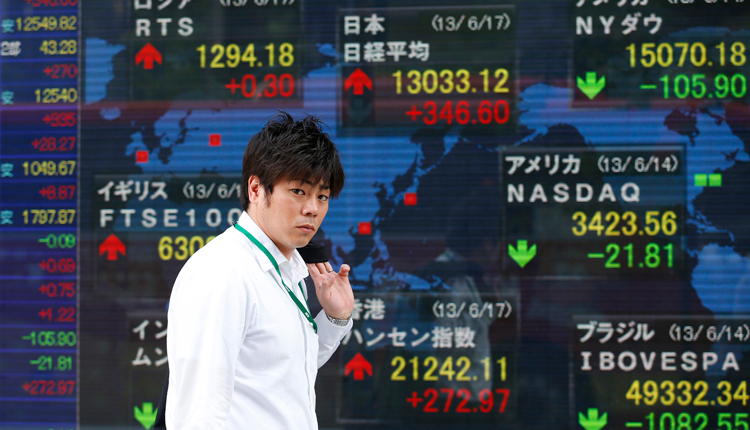Asian markets were largely down on Friday afternoon as Wall Street ended its four-day winning streak in the last session, following a report that U.S. President Donald Trump voiced his support for moving forward with more proposed tariffs.
The Nikkei 225 recovered from some of its earlier losses to end the week largely flat at 22,865.15 even though most sectors slipped. South Korea’s Kospi bucked the trend by closing up 0.67 percent to 2,322.88, as industry heavyweight Samsung Electronics gained 1.68 percent.
Down Under, the ASX 200 shed 0.51 percent to close at 6,319.5, with the telecommunications sector declining by 3.85 percent, giving up gains from a day earlier which were led by a proposed merger between TPG Telecom and Hutchison Telecommunications (Australia).
Over in the Greater China region, markets continued their downtrend from the past few days. The Shanghai composite ended the trading week down by 0.46 percent to 2,725.24, while the Shenzhen composite closed lower by around 1.08 percent to 1,451.38.
Hong Kong’s Hang Seng index was down by 1.15 percent as of 3:20 p.m. HK/SIN. Tencent’s stock dropped by more than 5.6 percent after the Chinese education ministry on Thursday detailed a plan for increased regulation and control over the number of new online video games. The stock recovered slightly from its gains but was still trading down by 5.2 percent at 3:23 p.m. HK/SIN.
On Thursday, Wall Street ended a four-day winning streak. The Dow Jones Industrial Average fell by 137.65 points to 25,986.92. The S&P 500 declined by 0.4 percent to 2,901.13 while the Nasdaq Composite slid by 0.3 percent to 8,088.36 after reaching a record high a day earlier.
The moves stateside came after a Bloomberg News report that Trump said to his aides that he supports going ahead with the imposition of proposed tariffs on an additional $200 billion in Chinese goods. The report did, however, also mention that Trump has not made up his mind on the matter. The White House declined to comment on the report.
“Investors should take the escalation in rising trade tensions seriously,” Kerry Craig, global market strategist at J.P. Morgan Asset Management, said in a midday note.
Craig did, however, add that investors should recognize that “any signs” of an easing in tensions could lead to market upside, and that “the reaction to these big trade related headlines has been relatively short lived.”
The U.S. dollar index, which tracks the greenback against a basket of currencies, was at 94.583 as of 3:23 p.m. HK/SIN after reaching lows around the 94.52 handle earlier in the week.
The Japanese yen gained against the dollar at 110.76 while the Australian dollar was down at $0.7245 as of 3:25 p.m. HK/SIN.
Oil prices were down in the afternoon of Asian trade, after rising to their highest in more than a month on Thursday. Around mid-day, global benchmark Brent crude oil was down 0.28 percent at $77.55 a barrel while U.S. crude fell by 0.13 percent at $70.16 a barrel.
Source: CNBC


